#kingdom of god
Text

So do not worry, saying, ‘What shall we eat?’ or ‘What shall we drink?’ or ‘What shall we wear?’...But seek first the kingdom of God and His righteousness, and all these things will be added unto you. Matthew 6: 31&33
How often we push our Bible reading and prayer to the end of the day. We hurriedly read a verse or two, say a prayer and plop into bed. We hardly have the energy or even the concentration to understand His word. It's no wonder that we feel stressed and drained even before it's midday.
The Bible urges us to seek the things of God first, His kingdom and His righteousness. The verse doesn't mean, Jesus will immediately make us rich or influential. It means, when you seek His kingdom first, He will be faithful to provide strength, wisdom for the day and all that you require, just at the right time, and you will surely glorify His name.
#seek god#kingdom of god#bible verse#daily devotional#christian quotes#bible quotes#inspiration#daily devotion#christian quote#christian life#scripture#bible
95 notes
·
View notes
Text
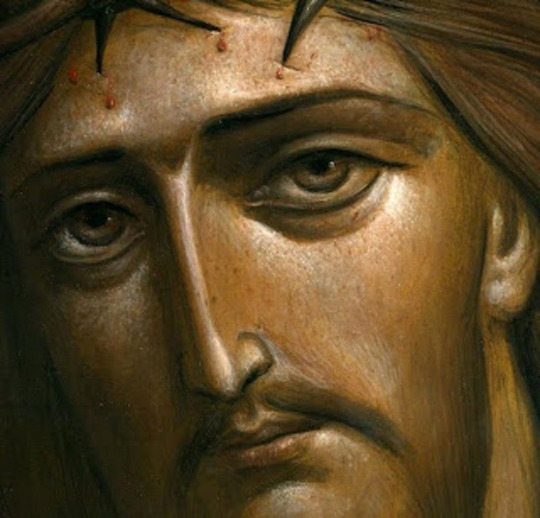
“It seems to me that I have found my heaven on earth, because my heaven is you, my God, and you are in my soul.
You in me, and I in you – may this be my motto.”
~ St. Elizabeth of the Trinity, O.C.D .(1880-1906)
#Christian#Lord Jesus Christ#saints#St. Elizabeth of the Trinity#Kingdom of God#Heaven on earth#communion#union with the Lord
64 notes
·
View notes
Text
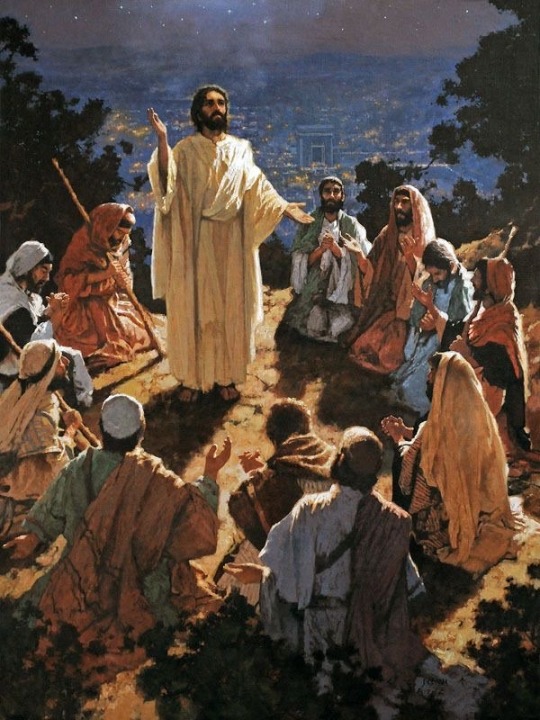
“But seek first the kingdom [of God] and His righteousness, and all these things will be given to you besides.”
Matthew 6:33
#by C. Michael Dudash#faith#christianity#religion#christian#theology#catholic#catholicism#spirituality#bible verse#christian art#book of matthew#matthew 6:33#christian artist#faith in jesus#christ is risen#kingdom of god#daily bible study#bible study#devotional#daily devotionals#daily scripture#bible scripture#scripture
135 notes
·
View notes
Text
Rachel Held Evans: What is the kingdom of heaven?
When Jesus himself talks about the good news, he frames it primarily in terms of “the kingdom of God." … As N. T. Wright and other New Testament scholars have shown, it’s important to understand that kingdom terminology refers not to some faraway paradise filled with disembodied souls, but rather to the will and reign of God, unleashed into the world through the life, death, and resurrection of Jesus.
"God’s kingdom in the preaching of Jesus,” explained Wright, “refers not to postmortem destiny, not to our escape from this world into another one, but God’s sovereign rule coming ‘on earth as it is in heaven.’ . . . Heaven, in the Bible, is not a future destiny but the other, hidden dimension of ordinary life—God’s dimension, if you like. God made heaven and earth; at the last he will remake both and join them together forever.” (Wright, Surprised by Hope: Rethinking Heaven, the Resurrection, and the Mission of the Church, 19)
What this means precisely remains something of a mystery, for Jesus’ favorite way to speak about the kingdom is through story, riddle, and metaphor.
The kingdom, Jesus taught, is right here—present yet hidden, immanent yet transcendent. It is at hand—among us and beyond us, now and not-yet. The kingdom of heaven, he said, belongs to the meek, the peacemakers, the merciful, and those who hunger and thirst for God. It advances not through power and might, but through missions of mercy, kindness, and humility. In this kingdom, many who are last will be first and many who are first will be last. The rich don’t usually get it, Jesus said, but children always do. This is a kingdom whose savior arrives not on a warhorse, but a donkey, not through triumph and conquest, but through death and resurrection. This kingdom is the only kingdom that will last.
—Rachel Held Evans, Inspired, p. 153-154
#rachel held evans#kingdom of god#kingdom of heaven#heaven#jesus#jesus of nazareth#jesus christ#christianity#christian#progressive christian#progressive christianity#episcopalian#nt wright#the bible#theology#lgbtq christian#lgbt christian#queer christian#the gospel
70 notes
·
View notes
Text

Paradise, the fresco decorating the interior dome of the baptistry of Padua Cathedral, painted by Giusto de' Menabuoi, circa 1378.
We have baptism, brethren, for regeneration and divine birth, one faith, one hope, one God, who is above all and through all and in us all. In His love, He gathers us together to Himself and makes us members of and one of Himself.
Gregory Palamas (On Peace §3a, a homily given in December of 1350 or January of 1351)
#Christianity#Orthodox Christianity#Jesus Christ#Christ Pantocrator#Ecclesia#Virgin Mary#saints#heaven#Kingdom of God#baptism#Gregory of Palamas
135 notes
·
View notes
Text

Jesus Blesses the Children
15 They brought unto him also babes, that he should touch them. When his disciples saw that, they rebuked them. 16 But Iesus called them unto him, and said: Suffer children to come unto me, and forbid them not. For unto such, belongeth the kingdom of God. 17 Verily I say unto you: whosoever receiveth not the kingdom of God, as a child: he shall not enter therein.
— Luke 18:15-17 | Tyndale New Testament (TYN)
Tyndale New Testament in Modern Spelling © Faithofgod.net - Alleluya.com. Permission is given freely for all NON-lucre, NON-commercial Scripture distribution endeavors provided that nothing is altered.
Cross References: Matthew 18:3; Matthew 19:13-14; Mark 10:13; Mark 10:15; 1 Corinthians 14:20; 1 Peter 2:2
#Jesus#blessing#children#kingdom of God#Luke 18:15-17#Gospel of Luke#Tyndale New Testament Bible#TYN
7 notes
·
View notes
Text
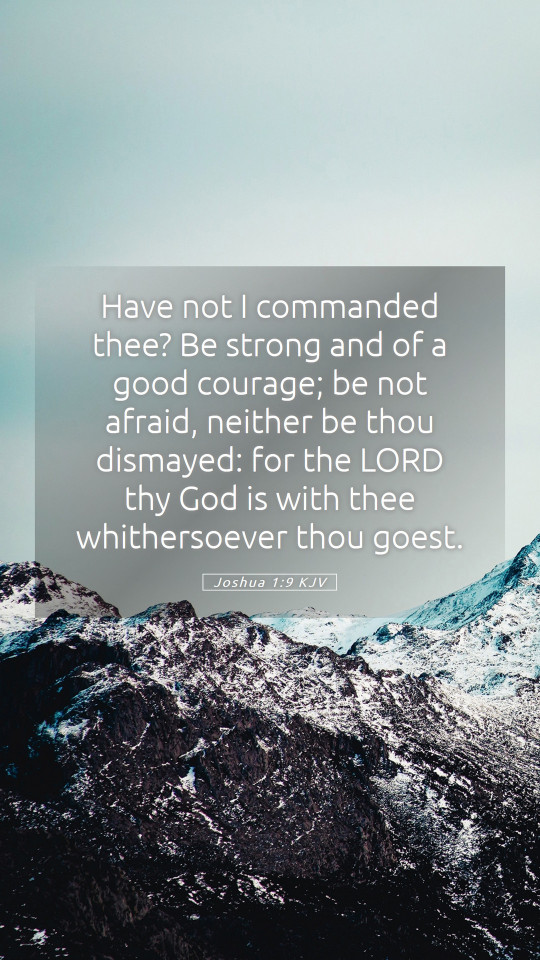
THE JAWBONE ANOINTING
Judges 15:15-19:
"He found a fresh jawbone of a donkey, reached out his hand and took it, and killed a thousand men with it. Then Samson said: 'With the jawbone of a donkey, heaps upon heaps, with the jawbone of a donkey I have slain a thousand men
And so it was, when he had finished speaking, that he threw the jawbone from his hand, and called that place Ramath Lehi.
Then he became very thirsty; so he cried out to the Lord and said, 'You have given this great deliverance by the hand of Your servant; and now shall I die of thirst and fall into the hand of the uncircumcised?' So God split the hollow place that is in Lehi, and water came out, and he drank; and his spirit returned, and he revived. Therefore he called its name En Hakkore, which is in Lehi to this day."
Ramath Lehi means "the hill of the jawbone," and En Hakkore means "the spring of him who prayed"!
This season the Lord is releasing the waters of refreshing for those that have become weary in battle. He is releasing a fresh anointing of His Spirit in the mouths of His remnant in this hour, and their jawbones shall be strengthened. Their words will carry the weight of His glory upon them – a weight that will become like a mighty wrecking ball to demolish and destroy the strongholds of darkness that are blocking many in the Body of Christ that are not receiving an understanding of their Christ identity.
Out of the hollow of the jawbone, streams of living water shall burst forth to refresh and revive those that are thirsty to advance God's Kingdom and disciple the nations (Matthew 28:19)
Declare with your mouth wide open and He will fill it! A new and fresh jawbone anointing is coming upon His weary warriors in this hour, and with His Word in their mouths, they shall destroy the kingdom of darkness.
ALBERT FINCH MINISTRY
6 notes
·
View notes
Photo
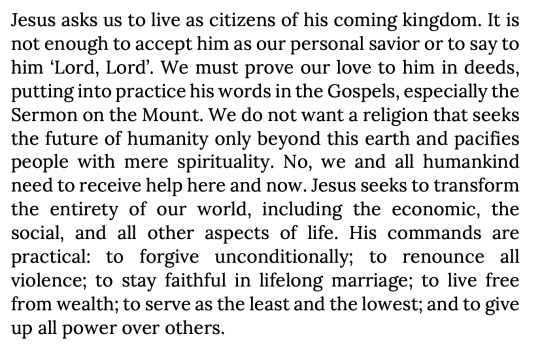
From Foundations of our faith and calling, the Bruderhof
#bruderhof#anabaptist#kingdom of God#christ#faith#practice#transformation#heaven on earth#forgiveness#renunciation#poverty#littleness#humility
49 notes
·
View notes
Text
“But seek first the kingdom of God and His righteousness, and all these things shall be added to you.” (Matthew 6:33)
11 notes
·
View notes
Text
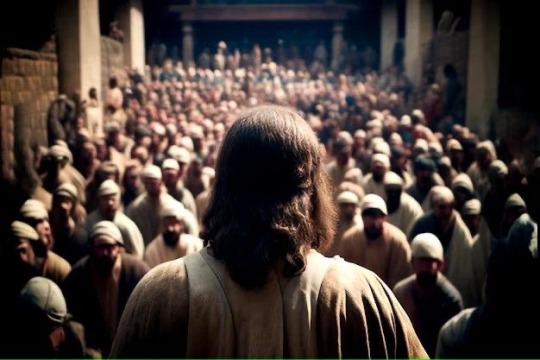
The kingdom of God is at hand.
Repent and believe in the Gospel.
#jesus#catholic#my remnant army#jesus christ#virgin mary#faithoverfear#saints#jesusisgod#endtimes#artwork#Jesus is coming#repent#kingdom of God#bibleversoftheday#holy bible#biblevisuals#bibleverse
19 notes
·
View notes
Photo

“I am surrounded by priests who repeat incessantly that their kingdom is not of this world, and yet they lay their hands on everything they can get.”
-- Napoleon Bonaparte
Nothing changes.
#Napoleon Bonaparte#christianity#religion#in the world but not of the world#kingdom of god#god's kingdom#kingdom of heaven#religion of money#god needs money#religion is a mental illness
104 notes
·
View notes
Text
“The desert is a “place” of renunciation, interiority and silence, where we are purified even our “our” idea of God. We enter the desert in the company of Jesus, who, in the desert, overcame the temptation of a possible other kingdom and faithfully opted for the Kingdom of the Father. […] Only through the desert do we come to the promised land.”
Pedro Casaldáliga, my translation
5 notes
·
View notes
Text
JOHN EVANGELIST: Master, what is holiness? Is it just to keep the Commandments and say the right prayers, and do the right things, and pay the proper dues, as the priests tell us? Or is it something quite different? The preaching of John Baptist has troubled our hearts, and the great prophets have terrified us with their thunderings against sin. We are disheartened, because nothing we do seems to be any good, and the righteous God is so great and terrible and far away. How can we rise so far above ourselves? What sort of heroic thing is holiness?
JESUS: The priests are right, and the prophets are right too. I haven’t come to take away the Law, but to show you how to keep it. This is holiness—to love, and be ruled by love; for love can do no wrong.
JOHN EVANGELIST: As simple as all that?
JESUS: So simple that a child can understand it. So simple that only children really can understand it.
ANDREW: But what has all this to do with the coming of the Kingdom?
JESUS: It is the Kingdom. Wherever there is love, there is the Kingdom of God.
(Excerpt from The Man Born To Be King, Episode 2, “The King’s Herald”, by Dorothy L. Sayers)
2 notes
·
View notes
Photo
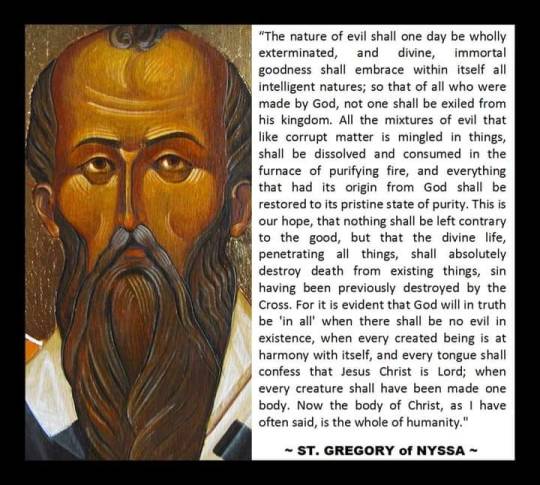
~So be it~
(Via Gebre Menfes Kidus)
#Orthodox Christian#saints#St. Gregory of Nyssa#body of Christ#whole of humanity#evil#Kingdom of God#Lord Jesus Christ#Amen
14 notes
·
View notes
Text
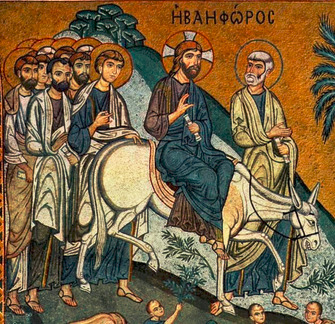

Left: detail of an icon of Jesus's Palm Sunday Procession.
Right: detail of a 1791 replication of a bas relief of the Triumph of Titus
[T]his demonstration harbored a dangerous message that would lead to Jesus's public execution by the end of the week. The way Jesus entered Jerusalem at the beginning of Passover week was a strategically organized demonstration.
Jesus's entire ministry was headed toward Jerusalem. Every time he had to leave a large crowd of sick people begging to be healed, it was because his journey was aimed toward Jerusalem. Word of Jesus's message had already spread to Jews in Jerusalem, and they were prepared to participate in these planned demonstrations. Mark 11 tells us that when Jesus and his disciples were approaching Jerusalem, he told two of his disciples, "Go into the village ahead of you, and immediately as you enter it, you will find tied there a colt that has never been ridden; untie it and bring it. If anyone says to you, 'Why are you doing this?' just say this, 'The Lord needs it and will send it back here immediately.'"
We don't know who was assigned to tie up the colt at the entrance, but taking the colt communicated to the crowds waiting in Jerusalem that Jesus was about to arrive. From the Mount of Olives, Jesus entered through the east entrance of Jerusalem on the colt while a crowd surrounded him, preparing the road for Jesus by spreading their cloaks and "leafy branches that they had cut in the fields" on the ground. And they shouted, "Hosanna! Blessed is the one who comes in the name of the Lord! Blessed is the coming kingdom of our ancestor David! Hosanna in the highest heaven!"
This deliberate sequence of actions was a symbolic reenactment of the prophecy of Zechariah. Zechariah 9:9 says, "Rejoice greatly, O daughter Zion! Shout aloud, O daughter Jerusalem! Lo, your king comes to you; triumphant and victorious is he, humble and riding on a donkey, a colt, the foal of a donkey." Matthew even directly quotes the verse in his account.
This was a purposefully timed demonstration that would also remind people of the next verse in Zechariah 9: "He will cut off the chariot from Ephraim and the war-horse from Jerusalem; and the battle bow shall be cut off, and he shall command peace to the nations; his dominion shall be from sea to sea, and from the River to the ends of the earth."
Although the gospel accounts do not report this detail, we know that the Roman governor Pontius Pilate arrived in Jerusalem at the beginning of the Passover Week as well. First-century Jewish historian Josephus wrote that during every Passover, Pontius Pilate and a legion of Roman soldiers spent the week in Jerusalem because of an increased chance of an uprising as Jews celebrated the event of the Exodus. The Romans wanted to make sure nobody got any dangerous ideas as they recounted God's attack on Egypt and the liberation of the Israelites.
So as Jesus humbly entered Jerusalem from the east on a donkey, surrounded by a crowd of peasants and leafy branches, Pontius Pilate was likely entering Jerusalem from the west on a chariot led by a war horse, surrounded by a legion of Roman soldiers with armor and deadly weaponry. In their book on Jesus's last week in Jerusalem, John Dominic Crossan and Marcus Borg point out, "What we often call Jesus's triumphal entry was actually an anti-imperial, anti-triumphal one, a deliberate lampoon of the conquering emperor entering a city on horseback through gates open in abject submission.
The symbolism is packed with meaning for the lives of those in the crowd surrounding Jesus. This demonstration exposed two warring kingdoms: the kingdom of Rome, with the power and weapons on their side, and the kingdom of God with the people on their side, desperate for liberation.
Damon Garcia (The God Who Riots: Taking Back the Radical Jesus, pages 146-148). Bolded emphases added.
#Christianity#Jesus Christ#Kingdom of God#The World#Palm Sunday#peace#war#imperialism#Pontius Pilate#symbolism#Gospel of Mark#Book of Zechariah
7 notes
·
View notes
Text

You Must Be Born Again
Jesus answered and said unto him, Verily, verily, I say unto thee, Except a man be born anew, he cannot see the kingdom of God.
— John 3:3 | English Revised Version (ERVB)
The English Revised Version of the Holy Bible is in the public domain.
Cross References: Ezekiel 36:26; Matthew 19:24; Matthew 21:31; Mark 9:47; Mark 10:14; John 3:4-5
#Jesus#Nicodemus#born again#kingdom of God#John 3:3#Gospel of John#New Testament#ERVB#English Revised Version Bible
18 notes
·
View notes